Discover The Little Red Podcast
The Little Red Podcast

The Little Red Podcast
Author: Graeme Smith and Louisa Lim
Subscribed: 2,346Played: 15,551Subscribe
Share
© 2026 Graeme Smith and Louisa Lim
Description
The Little Red Podcast: interviews and chat celebrating China beyond the Beijing beltway. Hosted by Graeme Smith, China studies academic at the Australian National University's Department of Pacific Affairs and Louisa Lim, former China correspondent for the BBC and NPR, now with the Centre for Advancing Journalism at Melbourne University. We are the 2018 winners of podcast of the year in the News & Current Affairs category of the Australian Podcast Awards. Follow us @limlouisa and @GraemeKSmith, and find show notes at www.facebook.com/LittleRedPodcast/
117 Episodes
Reverse
In 2013, to mark International Consumers Day, China’s state-run TV network labelled Apple a ‘bad company’. More than a decade later, despite claiming to rely on multinationals from 50 different countries, Apple still has nearly 100% of its supply chain in China. In this episode, we look at how Apple became so dependent on China, what it did to rehabilitate its image in the eyes of the Chinese government, and how it has influenced China’s aspiring global tech giants. Graeme is joined by Jianggan Li, the founder and CEO of Singapore-based Momentum Works, and the co-author of Seeing the Unseen: Behind Chinese Tech Giants’ Global Venturing and Patrick McGee, Financial Times journalist and the author of Apple in China: The Capture of the World’s Greatest Company. Image: c/- Gerd Eichmann, 2020. Apple Store on Nanjing Lu, Shanghai. Transcripts are available at https://ciw.anu.edu.au/podcasts/little-red-podcastSee omnystudio.com/listener for privacy information.
China’s college exam, the gaokao, is fetishized as the ultimate test, yet a lesser-known story is how it entrenches regional education discrimination. Its role at social engineering is also clear, with AI suddenly becoming the sixth most popular major in China, on command from above. This month, the Little Red Podcast sets the first ever podcast gaokao. The intrepid test-takers are Edward Vickers from Kyushu University, co-author of Education and Society in Post-Mao China and host of the Asian Education Podcast, Karron Huang, who is studying for a Masters in early childhood education at the University of Melbourne and sat the gaokao in 2015, and Ruixue Xia from the University of California San Diego who coauthored The Highest Exam: How the Gaokao Shapes China. Image: c/- Karron Huang. Morning gaokao study session, Foshan No. 1 High School, Guangdong, 2015. Transcripts are available at https://ciw.anu.edu.au/podcasts/little-red-podcastSee omnystudio.com/listener for privacy information.
In the latest episode in our series on belief, we’re looking at the CCP’s faith in Artificial Intelligence. China has embraced AI like no other nation, laying out a plan for AI that would see 70 percent adoption across six sectors - including governance – within the next two years. This aggressive approach is driven by commercial imperatives, the desire to shape international standards, and the hope that AI will solve the Party’s biggest worry: social stability. To explore China’s AI dreams, Louisa and Graeme are joined by China Media Project’s Alex Colville, who also writes the China Chatbot newsletter on Lingua Sinica, and Daria Impiombato, a senior analyst at the Mercator Institute for China Studies. Image: Goose, c/- Andy Hazel, 2025 Transcripts are available at https://ciw.anu.edu.au/podcasts/little-red-podcastSee omnystudio.com/listener for privacy information.
In the latest episode in our series on belief, we’re exploring the surprising revival of shamanism in China, which has made a comeback despite Mao's best efforts at eradication. Ritual healers and spirit mediums are tapping into online believers and a public thirst for authentic spirituality. Shamanism has also become a tourist draw as a form of cultural and religious heritage, with a shamanic theme park even existing in northeast China until 2021. To explore the diversity of shamanic practices across China and their survival in the face of official scepticism, Louisa and Graeme are joined by Feng Qu, an archaeologist from Nanjing Normal University and Mayfair Yang, a cultural anthropologist from UC Santa Barbara. Image: Totem poles at the Changbai Mountain Nayin Tribe Shamanic Culture Tourist Resort. Feng Qu, February 2023. Transcripts available at https://ciw.anu.edu.au/podcasts/little-red-podcast See omnystudio.com/listener for privacy information.
In the latest in our series on belief, we’re examining the emergence of incels in the world’s largest manosphere. China’s growing incel community is fuelled by state-approved nationalism and simple demographics—by one estimate, 30 million Chinese men won’t find a life partner. To find out why so many Chinese men believe that women are the source of their problems, Louisa and Graeme are joined by Yihuan Zhang, a graduate researcher at the University of Macau, Ling Tang, a cultural studies lecturer at the University of Melbourne, and Qian Huang from the Centre for Media and Journalism Studies at the University of Groningen. Image: Incel. c/- MissLunaRose12 - Own work, CC BY-SA 4.0 Transcripts available at https://ciw.anu.edu.au/podcasts/little-red-podcastSee omnystudio.com/listener for privacy information.
Continuing our series on belief in China, we look at the revival of Buddhism, which is being embraced by citizens and the Chinese state. While temple visits increase, the state is funding temples and martial arts academies from Nepal to Tanzania. As Xi Jinping extols Buddhism with Chinese characteristics, the Chinese state is leveraging Buddhism diplomacy to its advantage. To find out more, Louisa and Graeme are joined by anthropologist Gareth Fisher from Syracuse University, the author of From Comrades to Bodhisattvas, and political scientist Chien-Peng Chung from Lingnan University in Hong Kong. Image: c/- Bitter Winter. Weibo image of Xi Jinping visiting Hongjue Temple, 18 June 2024. Transcripts available at https://ciw.anu.edu.au/podcasts/little-red-podcastSee omnystudio.com/listener for privacy information.
In the latest in our series on belief, we’re looking at China’s official belief system—Marxism. In recent years, netizens have argued China has entered the ‘garbage time’ of history, a phrase borrowed from the dying minutes of a basketball game, which now references a crisis of trust in the Communist Party and its official ideology. To ask whether Marxism still exists in China, and how Marx influences the Chinese state, we’re joined by two guests: Alison Sile Chen Zhao, a University of California political analyst and the author of Her Battles, and Professor Xu Chenggang, a senior research fellow at the Stanford Center on China's Economy and Institutions, and the author of Institutional Genes: Origins of China’s Institutions and Totalitarianism. Episode art: Portrait of Karl Marx. c/- Wikimedia Commons. Transcripts available at https://ciw.anu.edu.au/podcasts/little-red-podcastSee omnystudio.com/listener for privacy information.
In our third episode on beliefs and ideologies, we explore China’s newfound enthusiasm for psychiatry. Counselling was only registered as a profession in 2001 yet has seen a massive boom under Xi Jinping. The psy-boom is such that even party branch meetings are doing mindfulness exercises, and practitioners are trying to indigenise counselling practices. There’s plenty to work on; the 2022 China Mental Health Survey found seven percent of the population were suffering from depression, half of them schoolchildren. To explore what’s drawing China to the couch, Louisa and Graeme are joined by Yiying Xiong, a counsellor and associate professor at John Hopkins University, Barclay Bram, an audio journalist at the Economist and fellow at the Asia Society, and medical anthropologist Hsuan-Ying Huang, from Taiwan’s National Yang Ming Chiao Tung University. Image: c/- Wikimedia Commons, Sigmund Freud's Couch, London, 2004. Episode transcripts are available at: https://ciw.anu.edu.au/podcasts/little-red-podcastSee omnystudio.com/listener for privacy information.
To welcome the Year of the Snake, we’re launching a new series looking at belief in China. Young Chinese people are increasingly turning to spirituality - even online manifestations of it - and feng shui, in this moment of high unemployment and economic stress. For a Party guided by materialism, this spike in spiritual interest presents a dilemma: how to regulate something you purport not to believe in. To discuss the state's use of spirituality from the Qing to now, we’re joined by Tristan Brown, a historian at MIT and author of Laws of the Land: Fengshui and the State in Qing Dynasty China and Haoyang Zhai, a researcher at the University of Melbourne. Image: “May The Snake Be With You” c/- Juliette Baxter Episode transcripts available at https://www.thechinastory.org/lrp/See omnystudio.com/listener for privacy information.
China is in the grip of a gender war. While government officials are texting and even cold calling women to urge them have children, the fertility rate continues to drop. Better educated and often better paid their male peers, many urban Chinese women are simply choosing not to marry. To discuss the growing female backlash to the Party’s pro-natal policies, Louisa and Graeme are joined by Chloe Mofei Shen, lifestyle director of Elle China and Qiqi Huang, post-doctoral fellow at the Institute of Advanced Studies at the University of Macau. Image: “Marrying late has many advantages”, BG E15/716, Landsberger Collection, 1975. Show transcripts available at https://www.thechinastory.org/lrp/See omnystudio.com/listener for privacy information.
Few outside the Chinese wedding banquet circuit have heard of fish maw, a flavourless, unappetising-looking swim bladder found in bony fish. In dried form, a kilo from the right species goes for around $150,000 on the world market, double the price of a kilogram of cocaine. The most prized maw is found in one of the remotest corners of the planet, the Kikori Delta in southern Papua New Guinea, where the once ignored scaly croaker is being targeted on an industrial scale by Chinese fishing companies, transforming the lives of villagers—and the ecosystem. Louisa and Graeme are joined by Jo Chandler, an award-winning journalist and senior lecturer at the University of Melbourne’s Centre for Advancing Journalism who reported on the fish maw trade for Nature magazine. Image: c/- Jo Chandler, Veraibari Village 2024. Jo’s fieldwork was supported in part by the Walkley Foundation Sean Dorney Grant for Pacific Journalism.See omnystudio.com/listener for privacy information.
Writers from Hong Kong face a Kafkaesque decision in the years since draconian security legislation was imposed on the city: to stay and be subject to intense censorship, or to write freely from exile. In this episode, Louisa speaks to two award-winning authors who have chosen different paths. Lau Yeewa is still living in Hong Kong; her book Tongueless, translated by Jennifer Feeley, won the 2024 Pen Translates award. Gigi Leung Lee-chi is now based in Taiwan, and her book The Melancholy of Trees has just won Taiwan's Golden Tripod award. Image: c/- Wikimedia Commons, Empty Bookshelves, 2014 Transcripts available at https://www.thechinastory.org/lrp/ See omnystudio.com/listener for privacy information.
In our third episode on pig butchering scams, we explore the origins of the Chinese criminal syndicates that enslave people from at least 66 different countries. We examine the institutions supporting this appalling business, from the Thai military to cryptocurrencies, Burmese border guard forces to special economic zones. And the marks for these scam syndicates are not just Chinese lonely hearts—Western countries are now more profitable to scam than China. To ask what can be done to counter this trade, Graeme is joined by Jason Tower, director of the Burma Program at the United States Institute of Peace, and Greg Raymond from the ANU’s Strategic and Defence Studies Centre. Image: c/- Stefan Czimmek/DW, KK Park on the Myanmar-Thai borderSee omnystudio.com/listener for privacy information.
Taiwan is ground zero for cognitive warfare, with the island subject to more disinformation than any other democracy. The targets are political candidates, media outlets, even boy bands. The threat is so serious that Taiwan’s Ministry of Justice recently set up a Cognitive Warfare Research Center. To explore this war for Taiwanese minds, Louisa and Graeme are joined by independent writer Min Chao and journalist Brian Hioe from New Bloom Magazine. Image: Taiwan News Formosa TV, YouTube, 20 January 2024. Transcripts available at: https://www.thechinastory.org/lrp/See omnystudio.com/listener for privacy information.
After our last episode on an online romance scam operating out of Palau we were contacted by Neo Lu, who was trafficked to work in an online scam camp on the Myanmar-Thailand border, the victim of a $US3 trillion global criminal industry. He joins Louisa and Graeme to offer jaw-dropping detail on life inside a scam centre, the mechanics of pig butchering, who benefits from this new form of slavery and how they launder their profits. Image: c/- Yihao Lu, Scamming equipment, Dongmei Camp, 2022 Episode transcripts are available at https://www.thechinastory.org/lrp/See omnystudio.com/listener for privacy information.
Chinese triads have been making a Pacific play, notably in the tiny nation of Palau. There a notorious triad boss - nicknamed Broken Tooth - reinvented himself as a CCP-linked businessman trying to set up a 'gangster-themed' casino, while police busted a Chinese 'fraud factory'. In Palau, this scam scheme was linked to businessmen touting United Front credentials, who are also involved in local politics and media outlets. To examine the ties between Chinese gangsters and the Communist Party, Louisa and Graeme are joined by Aubrey Belford, the lead Pacific editor for the Organized Crime and Corruption Reporting Project, and freelance journalist Bernadette Carreon.
Image: Downtown Koror, Palau’s largest town. Image c/- Richard Brooks
Transcripts available at https://www.thechinastory.org/lrp/See omnystudio.com/listener for privacy information.
For our hundredth episode, there was only one choice in the Year of the Dragon. We tackle the scaly mythical beast, which now finds itself central to the Party’s image. We look at the political efficacy of the dragon for the CCP, which has recently launched a nationalistic rebranding campaign for the ‘loong’ to distinguish it from evil Western dragons. We explore the history of the dragon, its often-fraught relationship to power, and (once common) “official sightings” of dragons in government gazetteers. To get to grips with the most auspicious creature in China’s pantheon, Louisa and Graeme are joined by Australian sinologist Linda Jaivin, author of The Monkey and the Dragon, historian James Carter from St. Joseph's University, and Annie Ren, a postdoctoral fellow of Chinese literature at the Australian National University. Transcripts are available at: https://www.thechinastory.org/lrp/ Image: c/- Louisa Lim, Bendigo, 2024See omnystudio.com/listener for privacy information.
China’s largesse in the Pacific is nothing if not visible. From mobile phone towers to gleaming stadiums and government buildings, Beijing’s splashing out on those it sees as choosing “the right side of history.” In this episode, we explore Taiwan’s future in the Pacific as it is deserted by its former diplomatic allies, lured by Beijing’s goodies. In this episode, Louisa and Graeme are joined by Solomon Islands journalist Dorothy Wickham, co-founder of the Melanesian News Network, and the University of California’s Jessica Marinaccio, a former staffer in Tuvalu’s Taiwanese embassy.
Show transcripts can be found at: https://www.thechinastory.org/lrp/
Image: Wikimedia Commons. “President Tsai and Tuvalu Prime Minister Sopoaga plant a coconut seedling, symbolizing the close friendship between Taiwan and Tuvalu.” (2017) Office of the President, Republic of China (Taiwan) | Government Website Open Information AnnouncementSee omnystudio.com/listener for privacy information.
Stand-up comedy looked set to be the next big thing on China’s entertainment scene, with shows like Roast Convention drawing billions of views and comics scoring lucrative commercial endorsements. But comedy now finds itself in retreat. A new wave of feminist comics is struggling with attacks from online trolls and a disapproving state. To ask whether the regime–and China’s men—can take a joke, Louisa and Graeme are joined by three stand up Chinese comedians: He Huang who's based here in Australia, and two members of the London-based 50 Shades of Feminism, Barbie and Elena.
Transcript available at: https://www.thechinastory.org/lrp/the-feminists-have-stood-up-gender-and-comedy-in-china/See omnystudio.com/listener for privacy information.
Every generation in modern China has been richer and more ambitious than the one before—until Gen Z. With youth unemployment so high that the government has simply stopped reporting the figures, many are opting to lie flat, slump down dead, or even become full-time children. The Party frets that despite the best efforts of the propaganda organs to get them excited about a tech-driven utopian future, China’s young people seem to have lost their work ethic. Louisa and Graeme are joined by Steven Sun Zhao, a Gen Z writer at Chaoyang Trap and Yaling Jiang, a proud millennial and the founder of Aperture China.
A full transcript is available at https://www.thechinastory.org/lrp/full-time-children-or-half-dead-chinas-gen-z-goes-to-ground/
Image: Woman in black jacket sitting on blue chair, c/- 绵 绵 on UnsplashSee omnystudio.com/listener for privacy information.


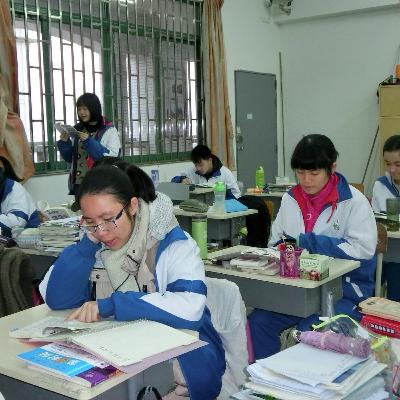

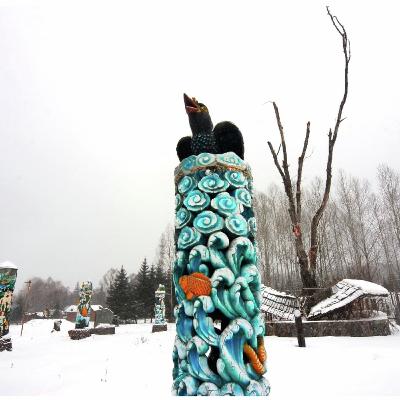

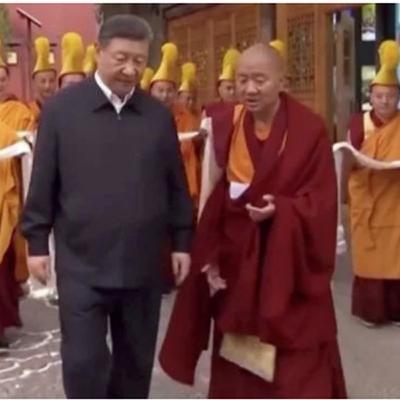
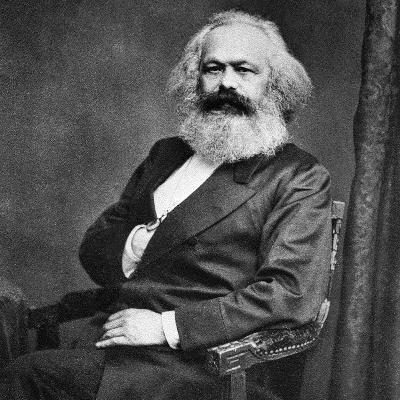





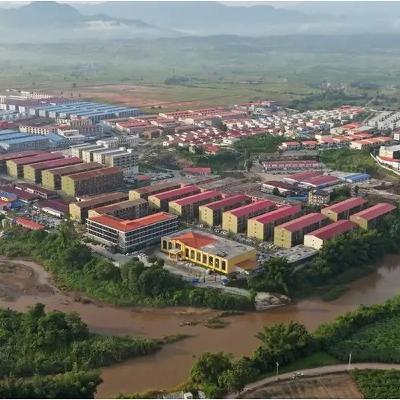
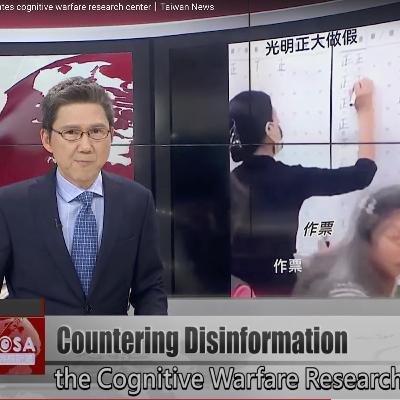

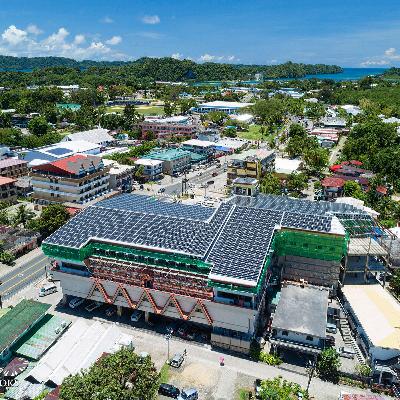
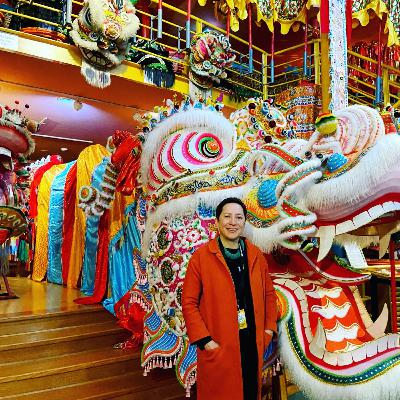


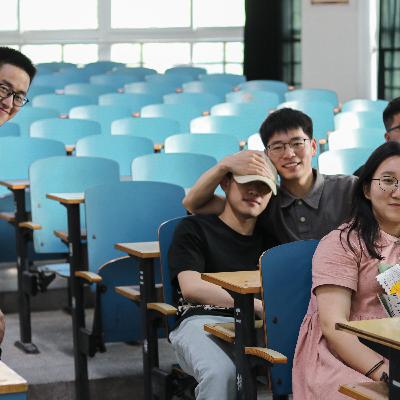



I like how this episode implies the "evil Americans" or "evil Trump" viciously attack China. Despite what the commentators say, China could have been more responsible in controlling the virus. The consulate closure was due to spying and other activities the government didn't approve of. Between Hong Kong, the Uyghurs, the silencing of early whistleblowers about the virus, and the failure to even try to contain the virus, The United States definetly has a reason to economically punish China and Chinese officials.
q: Will they be able to make popular films under tight censorship? a: They moved the film department! ???
without any violence. u must be blind to say so.
The best podcast on China.